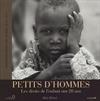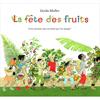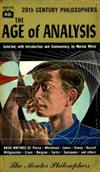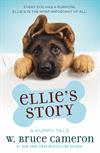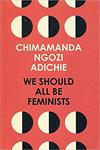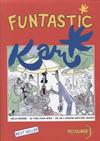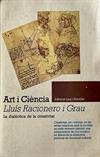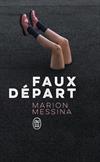
Fathers & Sons
3 journalers for this copy...
For the Castricum Meetup in the Netherlands June 2010
Dit boek heb ik meegenomen van de meeting, omdat ik de cover erg mooi vond, evenals het lettertype. Verder lijkt het me gewoon een mooi verhaal.
Journal Entry 3 by  dutch-book
dutch-book at Heerenveen , Fryslân (Friesland) Netherlands on Monday, January 5, 2015
at Heerenveen , Fryslân (Friesland) Netherlands on Monday, January 5, 2015
 dutch-book
dutch-book at Heerenveen , Fryslân (Friesland) Netherlands on Monday, January 5, 2015
at Heerenveen , Fryslân (Friesland) Netherlands on Monday, January 5, 2015
Interesting book! I didn´t know that this was autobiographical, but it certainly made it even more appealing to me. It now goes into the AVL-stack and I will release it at the annual Castricum-meeting.
Journal Entry 4 by  dutch-book
dutch-book at BC Meeting 2015 in Castricum, Noord-Holland Netherlands on Sunday, July 5, 2015
at BC Meeting 2015 in Castricum, Noord-Holland Netherlands on Sunday, July 5, 2015
 dutch-book
dutch-book at BC Meeting 2015 in Castricum, Noord-Holland Netherlands on Sunday, July 5, 2015
at BC Meeting 2015 in Castricum, Noord-Holland Netherlands on Sunday, July 5, 2015
Released 8 yrs ago (7/5/2015 UTC) at BC Meeting 2015 in Castricum, Noord-Holland Netherlands
WILD RELEASE NOTES:
At the meeting.
I picked this up in Castricum because it sounds like a fascinating story. As a Brit in voluntary exile, I was willing to bet that this had been brought to Castricum by somebody else with a British connection but I was wrong. The author, Richard Madeley, is one half of the husband and wife presenting team, Richard and Judy. I've only ever seen them once or twice, but I recognised the name which is what made me pick it up to start with. It sounds very interesting.
Although I found Richard Madeley’s account of his family fascinating, like talking to older family members reminiscing about the past, one thing rather irritated me. I realise the book is called Fathers & Sons, but why is that? Why is his family history so biased towards the male side of his family? Are there no anecdotes about the women? The only one of any note is when his great aunt persuaded her siblings to let Geoffrey keep the farm. His mother only gets a mention when he asks her opinion on why his father did certain things. Were the women really so unmemorable?
This is equally the case in the story of his own life. His wife Judy is equally famous and came to their marriage with twin sons from her previous marriage. Together they formed a new family, dealing with miscarriages, then the joy of two children of their own. Richard examines his relationship with his easy-going stepsons and rebellious son Jack, but his daughter Chloe is reduced to two anecdotes: her birth – when she apparently looked like a kitten, unlike her dinosaur-like brother – and as a horrified observer when her father nearly choked to death.
To be honest, it’s the stories of the men in the older generations which are the interesting part of the book. By the end I found Richard Madeley’s own self-centred narrative less compelling. At his wedding to Judy, he refers to “my stepsons and my son”, not ‘our’, which in casual speech would not grate, but in book form does. Unless Judy was planning on writing her own memoir about the female side of her own family, it feels like a gaping hole in the narrative to never hear any speculation about how the women must have felt when their husbands and brothers made life changing decisions with little input from them. Men writing history again.
An incomplete summary
Richard Madeley starts by writing about his paternal grandfather, one of seven children, the only one left behind in England when the rest emigrated to Canada after a partner in their firm stepped back. In exchange for the cost of their one-way ticket, 10-year-old Geoffrey was left with his uncles and aunt to work on their farm. His plans to join his family at the age of 21 were thwarted by the First World War. In a serendipitous moment, he even managed to meet two of his brothers on the way to the trenches. Incredible! After the war, he demobbed to Canada to join his family, briefly.
Geoffrey was separated from his family twice, as a child and again, when he returned to the farm from Canada after WWI, on the understanding that he would inherit if he came back to England. Moreover, he left the love of his life behind in Canada because his Canadian fiancee had refused to leave her family behind and move abroad.
Geoffrey continued to work on the farm, surviving the Depression, growing the herd of cattle. He married and had three boys: James, John and Christopher, the author’s father. Tragically, John died at the age of four of pneumonia and his parents never recovered from the shock. Geoffrey withdrew into emotional coldness and even cruelty, and Kitty was also less than warm. Only when they had retired and the older generation had moved to a smaller cottage, were they able to spend time and affection on their grandchildren.
When his Uncle William died, Geoffrey had been promised the farm, but there was a terrible shock in store: he was left nothing at all and the farm was divided between his brothers and sisters in Canada. Fortunately his Aunt Sarah immediately hired a lawyer to dispute the patently unfair will and his youngest sister persuaded the others to allow his family to stay at the farm.
The next family betrayal came when Chris (Richard’s father) was sent away to boarding school because his father thought he was going off the rails, simply because his school report said he needed to focus, he had started dating girls and enjoying some freedom. The boarding school was strict, food was appalling due to rationing and he was an outsider not used to boarding school life. To make matters worse, many of the teachers had been called up to fight, so were replaced by retirees with outdated ideas. He hated it. Immediately after leaving school, he had to do national service in communications in the RAF, which he did love.
He later went into journalism, found a newspaper job in Canada, but that fell through, through no fault of his own. He then had a lucky break that got him started again working in PR for Ford and met his wife, Mary Claire, a red-headed actress. They later moved to England, where they had two children, Richard and his older sister Elizabeth. Due to the coldness of his father, Chris was prone to an authoritarian style of parenting that came to a head one fateful day when he lost his temper and overstepped the mark. Although this was never repeated, it made Richard vow never to treat his own children that way. Which was just as well, because his own son sounds like he was somewhat of a rebel. A nice touch to finish the book with a epilogue by son Jack.
This is equally the case in the story of his own life. His wife Judy is equally famous and came to their marriage with twin sons from her previous marriage. Together they formed a new family, dealing with miscarriages, then the joy of two children of their own. Richard examines his relationship with his easy-going stepsons and rebellious son Jack, but his daughter Chloe is reduced to two anecdotes: her birth – when she apparently looked like a kitten, unlike her dinosaur-like brother – and as a horrified observer when her father nearly choked to death.
To be honest, it’s the stories of the men in the older generations which are the interesting part of the book. By the end I found Richard Madeley’s own self-centred narrative less compelling. At his wedding to Judy, he refers to “my stepsons and my son”, not ‘our’, which in casual speech would not grate, but in book form does. Unless Judy was planning on writing her own memoir about the female side of her own family, it feels like a gaping hole in the narrative to never hear any speculation about how the women must have felt when their husbands and brothers made life changing decisions with little input from them. Men writing history again.
An incomplete summary
Richard Madeley starts by writing about his paternal grandfather, one of seven children, the only one left behind in England when the rest emigrated to Canada after a partner in their firm stepped back. In exchange for the cost of their one-way ticket, 10-year-old Geoffrey was left with his uncles and aunt to work on their farm. His plans to join his family at the age of 21 were thwarted by the First World War. In a serendipitous moment, he even managed to meet two of his brothers on the way to the trenches. Incredible! After the war, he demobbed to Canada to join his family, briefly.
Geoffrey was separated from his family twice, as a child and again, when he returned to the farm from Canada after WWI, on the understanding that he would inherit if he came back to England. Moreover, he left the love of his life behind in Canada because his Canadian fiancee had refused to leave her family behind and move abroad.
Geoffrey continued to work on the farm, surviving the Depression, growing the herd of cattle. He married and had three boys: James, John and Christopher, the author’s father. Tragically, John died at the age of four of pneumonia and his parents never recovered from the shock. Geoffrey withdrew into emotional coldness and even cruelty, and Kitty was also less than warm. Only when they had retired and the older generation had moved to a smaller cottage, were they able to spend time and affection on their grandchildren.
When his Uncle William died, Geoffrey had been promised the farm, but there was a terrible shock in store: he was left nothing at all and the farm was divided between his brothers and sisters in Canada. Fortunately his Aunt Sarah immediately hired a lawyer to dispute the patently unfair will and his youngest sister persuaded the others to allow his family to stay at the farm.
The next family betrayal came when Chris (Richard’s father) was sent away to boarding school because his father thought he was going off the rails, simply because his school report said he needed to focus, he had started dating girls and enjoying some freedom. The boarding school was strict, food was appalling due to rationing and he was an outsider not used to boarding school life. To make matters worse, many of the teachers had been called up to fight, so were replaced by retirees with outdated ideas. He hated it. Immediately after leaving school, he had to do national service in communications in the RAF, which he did love.
He later went into journalism, found a newspaper job in Canada, but that fell through, through no fault of his own. He then had a lucky break that got him started again working in PR for Ford and met his wife, Mary Claire, a red-headed actress. They later moved to England, where they had two children, Richard and his older sister Elizabeth. Due to the coldness of his father, Chris was prone to an authoritarian style of parenting that came to a head one fateful day when he lost his temper and overstepped the mark. Although this was never repeated, it made Richard vow never to treat his own children that way. Which was just as well, because his own son sounds like he was somewhat of a rebel. A nice touch to finish the book with a epilogue by son Jack.



